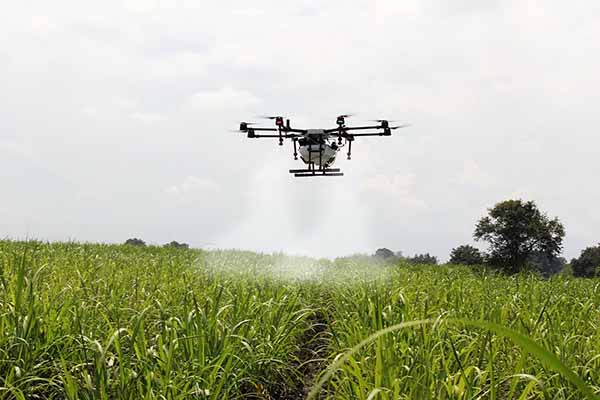In the recent past, with the advancement of technologies, the concept of agro-tech companies has shot-up to a considerable extent. Several agri-tech startups have mushroomed all over the country and have started reshaping agriculture vastly.
Startups within the agri-tech sector are right on the forefront engaged in solving and organising the Indian fragmented agri-industry with a tech-first approach. A shift towards technology within the agricultural domain has been instrumental in reshaping the industry along with the advent of agri-tech firms.
Over the past one decade, India’s agricultural landscape has undergone substantial changes majorly led by technology-first startups. These startups, bring along with them a new package of practices to an otherwise way more traditional industry. However, these next-gen of companies are making their efforts in providing technology and information available to farmers. Such companies are even providing opportunities to improve their incomes, make their livelihood better and engage in more sustainable food production.
Going forward, some of the trends that the agri-tech industry is going to experience include the following:
Market Connectivity Will Become Better
Market connectivity will become much better. A major chunk of the agriculture value chain development will be on linking end users with producers. Commercials and large-scale farming are now in play owing to tech interventions. It assist players in maintaining quality standards and delivery requirements and others.
Tech Powered Farming Will Become More Frequent
Tech-powered farming: the future of agri-tech looks bright owing to the implementation of tech-powered farming.
A major drawback of farming in India is the process of crop selection based upon anecdotal and obsolete data. Agri-tech companies are now using technology such as drones, sensors, satellite to decipher data along with imagery, soil condition and others to understand the yield more holistically.
This data available at the farm-level is aligning variables such as irrigation, insecticide, requirement, fertilization and crop rotation. With advanced analytics powered by tech, farmers can make informed decisions and invest in agricultural practices that will give them the best possible returns.
Post-harvest optimization
Post-harvest optimization is something that the agri-tech industry is going to witness in the coming future. Transportation, inefficient storage along with delays ends up in the wastage of agri-product and even processed foods. Apart from the bottlenecks in connectivity, the deficiency of traceability often restricts the export potential of agribusinesses.
Increasing automation in agricultural operations with tech solutions can help in achieving post-harvest optimization to reduce manual errors. Services including end-to-end visibility and digital marketplaces not only facilitate transparent transactions but also keep each and every stakeholder informed. With a surge in Q-commerce and E-commerce enhancing traceability via tech in agriculture is the next major milestone.
Alleviating Supply Chain Issues
There are ineptitudes on both sides of the supply chain as the volume of yield that is available for sale is limited whereas the demand for the same is ever-growing. Identifying buyers is tedious. Additionally, due to the rise in demand all across the world, the ability to supply good quality products has been restricted
Through online detection techniques, smart monitoring of fresh foods along with inventory management software, the new-age agri-centric innovations by companies can minimise this wastage to a large extent.
This sector is critical to any economy because along with food it also provides jobs and contributes to technological advancements. On a final note, it can be said that agri-tech is a massive industry in India and it has the capability to bring about several innovations. Any advancements have the potential to dramatically improve the experience for farmers, consumers and companies.
About the author:

Vipin Vindal is CEO at Quarks Technosoft.















